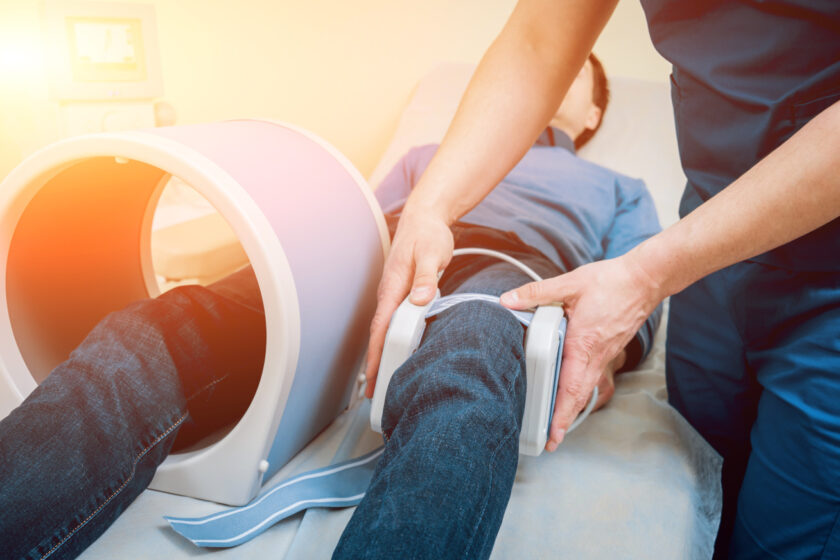What is Bipolar Disorder?
Bipolar disorder is a mental health condition characterized by extreme mood swings, including periods of manic episodes and depressive episodes. These mood episodes can significantly impact a person’s ability to function in daily life. Bipolar disorder is a complex condition with various subtypes, including Bipolar I Disorder, Bipolar II Disorder, and Cyclothymic Disorder.
Bipolar I Disorder involves severe manic episodes that last at least seven days, or manic symptoms so severe that immediate hospital care is needed. Depressive episodes also occur, often lasting at least two weeks.
Bipolar II Disorder is defined by a pattern of depressive episodes and hypomanic episodes, which are less severe than full manic episodes.
Cyclothymic Disorder involves numerous periods of hypomanic symptoms as well as periods of depressive symptoms lasting for at least two years (one year in children and adolescents), but the symptoms do not meet the diagnostic requirements for a hypomanic episode and a depressive episode.
People with bipolar disorder experience intense emotional states, which are called mood episodes. An overly joyful or overexcited state is called a manic episode, while an extremely sad or hopeless state is known as a depressive episode. Between these episodes, many people with bipolar disorder may experience periods of normal mood.

Symptoms of Bipolar Disorder
Bipolar disorder symptoms vary depending on the type of mood episode. During a manic episode, a person may feel euphoric, full of energy, or unusually irritable. They might also exhibit reckless behavior, such as spending sprees, risky sexual activities, or substance abuse. Manic symptoms can be disruptive and often lead to serious consequences if not treated.
During a depressive episode, individuals might experience overwhelming sadness, hopelessness, and a lack of energy or interest in activities they once enjoyed. These depressive symptoms can be severe and can significantly impair a person’s daily functioning.
Other symptoms of bipolar disorder include:
Mood swings: Rapid shifts in mood, often without a clear cause.
Depressive symptoms: Prolonged periods of sadness or hopelessness.
Manic symptoms: Periods of extreme energy, euphoria, or irritability.
Manic depression: A term often used interchangeably with bipolar disorder, highlighting the cycle between manic and depressive episodes.
It’s important to recognize the bipolar disorder signs early to treat bipolar disorder effectively, often through a combination of medication and talk therapy.
Experience Structured Living: A Supportive Environment for Managing Bipolar Disorder
For people with bipolar disorder, finding the right level of care is essential to managing their condition effectively. Experience Structured Living in San Diego offers a supportive housing environment that provides the stability and care needed for those struggling with this disorder.
Our residential program is designed to help residents manage their mood episodes, develop coping skills, and maintain a balanced daily routine. The supportive environment at Experience Structured Living allows individuals to focus on their recovery while receiving the personalized care they need.
Key features of our program include:
Individualized support: Each resident receives a tailored support plan that addresses their specific symptoms of bipolar disorder, including manic and depressive episodes.
Supportive housing: Our facility offers a safe, structured environment where residents can focus on their mental health without the distractions and pressures of everyday life.
Comprehensive treatment: We provide access to a range of mental health services, including talk therapy, medication management, and life skills training.
Community support: Residents benefit from a sense of community and peer support, which can be crucial for those dealing with the challenges of bipolar disorder.
Experience Structured Living is more than just a place to stay; it’s a community dedicated to helping individuals with mental health concerns achieve stability and independence. Whether you’re struggling with bipolar I disorder, bipolar II disorder, or cyclothymic disorder, our program offers the care and support you need to live a fulfilling life. Reach out to us today to forge the path to independence in a safe and nurturing environment.
FAQs for Bipolar Disorder and Treatment at Experience Structured Living
Mood stabilizers are a type of medication used to treat bipolar disorder. They help manage extreme mood swings by balancing the highs (manic episodes) and lows (depressive episodes) that people with bipolar disorder experience. Mood stabilizers are often a key component of a comprehensive bipolar disorder treatment plan.
Manic episodes are periods of extremely elevated mood, energy, and activity levels that can severely impact a person’s ability to function. These episodes often require hospitalization. Hypomanic episodes are similar but less severe. While hypomanic episodes involve heightened mood and energy, they don’t typically impair daily functioning as significantly as manic episodes do. However, both types of episodes are important indicators of bipolar disorder.
Managing hypomanic and depressive symptoms typically involves a combination of mood stabilizers, psychotherapy, and lifestyle changes. The goal is to prevent the occurrence of these episodes and to reduce their severity when they do occur. Regular monitoring and adjustments to the treatment plan are crucial in managing bipolar symptoms effectively.
Yes, anxiety disorders often co-occur with bipolar disorder. When treating bipolar disorder, it’s important to address co-occurring anxiety disorders as well. Treatment may include a combination of mood stabilizers, anti-anxiety medications, and therapy to help manage both conditions simultaneously.
Manic depressive illness is an older term that was commonly used to describe what is now known as bipolar disorder. It refers to the same condition characterized by extreme mood swings, including manic and depressive episodes. The modern term, bipolar disorder, is now widely used in both clinical and everyday settings.
Bipolar I Disorder is characterized by the occurrence of at least one manic episode, which may be preceded or followed by hypomanic or depressive episodes. This type of bipolar disorder is typically more severe than Bipolar II Disorder, where individuals experience hypomanic episodes but not full-blown manic episodes. Treating Bipolar I Disorder often requires a more intensive approach due to the potential severity of the manic episodes.
Early signs of manic episodes may include heightened energy levels, decreased need for sleep, increased talkativeness, and risky behaviors. Depressive episodes often start with feelings of sadness, hopelessness, fatigue, and loss of interest in daily activities. Recognizing these signs early is crucial for treating bipolar disorder effectively and preventing episodes from worsening.
Experience Structured Living provides a supportive environment where individuals with bipolar disorder can receive comprehensive care. Our program includes medication management, therapy, and personalized care plans to help manage bipolar symptoms. We focus on creating a stable environment that reduces the likelihood of manic or depressive episodes, allowing residents to work towards long-term stability and independence.

Dr. Melden earned his Doctorate in Osteopathic Medicine at Philadelphia College Osteopathic Medicine and went to USC Presbyterian Hospital for his residency in Family Medicine. He then completed his Psychiatric residency at the University of California, Irvine and went to UCSD Geropsychiatry pursuing a fellowship. Dr. Melden has over 14 years of experience as a clinician specializing in treating child and adolescent, adult and geriatric clients. He has devoted his life to psychiatry in a variety of different treatment settings including in- patient and out-patient environments. He specializes in the psychiatric evaluation, complementary therapy approaches, and medical management of individuals suffering from mental illness. Currently, he maintains a private practice with Crownview Medical Group in Coronado and Carlsbad, California where he is CEO/President.





